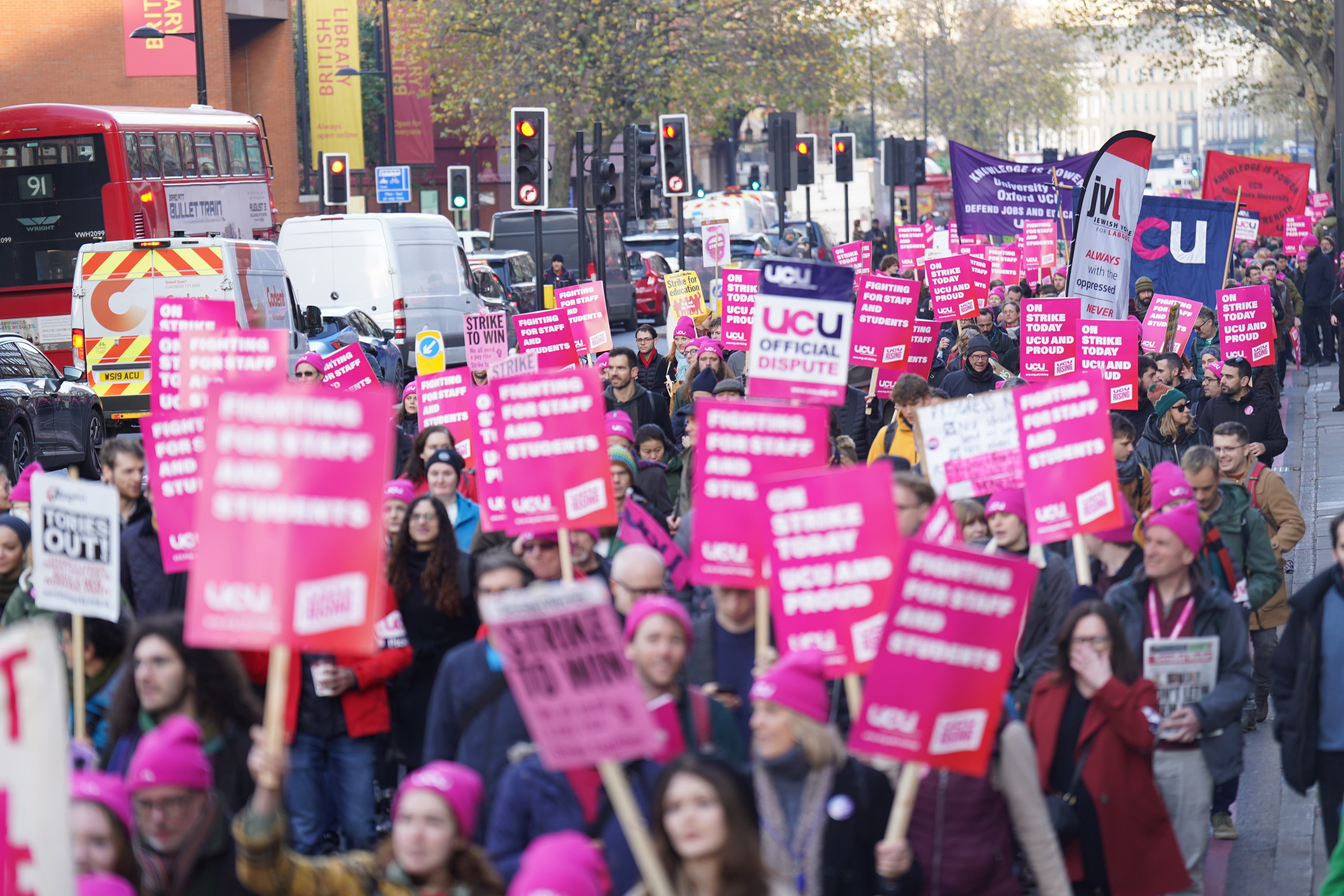Universities to be hit with more strikes before end of September, says union
UCU members at more than 140 universities across the UK are refusing to mark exams or assessments in a dispute over pay and working conditions.

Your support helps us to tell the story
From reproductive rights to climate change to Big Tech, The Independent is on the ground when the story is developing. Whether it's investigating the financials of Elon Musk's pro-Trump PAC or producing our latest documentary, 'The A Word', which shines a light on the American women fighting for reproductive rights, we know how important it is to parse out the facts from the messaging.
At such a critical moment in US history, we need reporters on the ground. Your donation allows us to keep sending journalists to speak to both sides of the story.
The Independent is trusted by Americans across the entire political spectrum. And unlike many other quality news outlets, we choose not to lock Americans out of our reporting and analysis with paywalls. We believe quality journalism should be available to everyone, paid for by those who can afford it.
Your support makes all the difference.Universities are set to be hit by more strikes by the end of September in disruption over a pay dispute that could last well into 2024 unless employers get to the negotiating table, a union has warned.
Members of the University and College Union (UCU) at 145 universities across the UK have refused to mark exams or assessments since April 20 in a dispute over pay and working conditions.
The union’s higher education committee voted on Monday to take further strike action before the end of September and to begin preparations for a new ballot.
The Universities and Colleges Employers Association (UCEA) chief executive Raj Jethwa described the move as “an extremely disappointing decision” which would force UCU members to “target students.”
UCU general secretary Jo Grady said the vote meant universities would be hit “with multiple days of strike action at the start of the coming academic year if vice-chancellors refuse to return to negotiations.”
Vice-chancellors have decided that crushing their own workers is more important than seeing students graduate after years of hard work. This is a national scandal
She added: “We will not be bullied into accepting gig economy universities, nor will we accept employers imposing punitive pay deductions.”
She said: “Vice-chancellors have decided that crushing their own workers is more important than seeing students graduate after years of hard work. This is a national scandal.
“The UK higher education sector presents itself as a world leader, but it is riddled with casualisation, insecurity and low pay – our members have no choice but to stand up for themselves.
“Therefore, the marking boycott will continue, we will call more strike action in September and we will now begin plans to re-ballot university staff so we can take further action in the coming academic year.”
The UCU and the UCEA held talks in July, culminating in the release of a joint statement which described the meeting as “constructive, although there is still significant ground to be covered”.
Mr Jethwa, who said the boycott is “extremely concerning”, added: “UCU must be honest with its members about the fact that there is no possibility of a further pay uplift in the 2023-24 pay round and that these aspects of the talks are complete.
“However, UCEA awaits a formal response from UCU and all the unions to our proposal last week for an independent review of sector finances, followed by further talks on the important pay related matters raised by the UCU and the unions.”
These talks could be held at Acas and involve a “substantial package of joint work” which could look at pay reform, action to further reduce pay gaps in higher education, workload and contract types, he suggested.
The vote comes after Education minister Robert Halfon called on university employers and the UCU to resume talks and end the “unacceptable” marking assessment boycott.
Mr Halfon described negotiations as having “broken down” in his letter to the UCU and the UCEA on Sunday.
He said he was “deeply concerned” about the impact of the boycott on students “many of whom have already suffered significant disruption to their studies over recent years, face further disruption and uncertainty.”